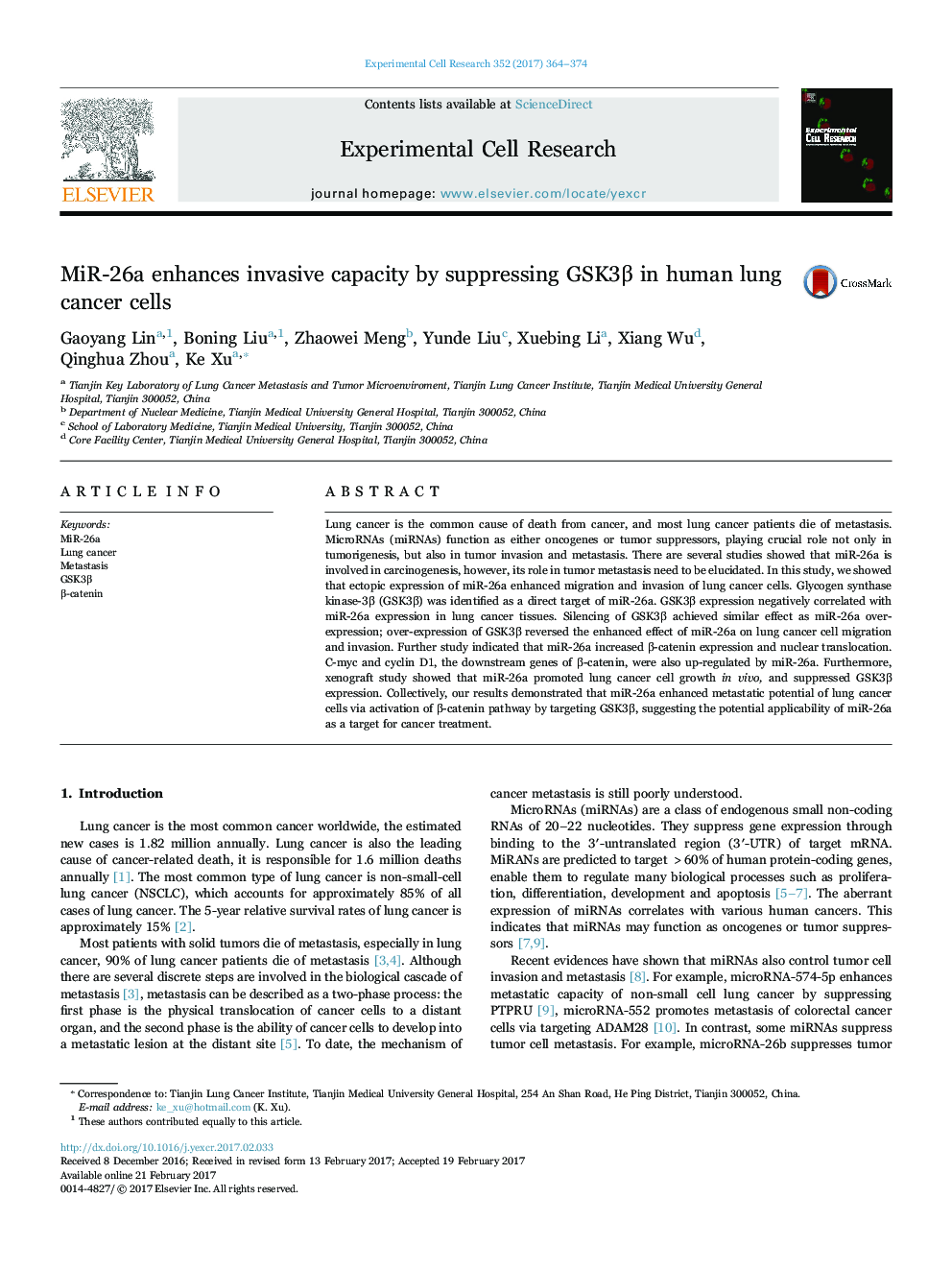| Article ID | Journal | Published Year | Pages | File Type |
|---|---|---|---|---|
| 5527017 | Experimental Cell Research | 2017 | 11 Pages |
â¢miR-26a enhances migration and invasion of lung cancer cells.â¢GSK3β is identified as a direct target of miR-26a.â¢miR-26a activates β-catenin pathway by targeting GSK3β.â¢miR-26a promotes lung cancer cell growth in vivo.
Lung cancer is the common cause of death from cancer, and most lung cancer patients die of metastasis. MicroRNAs (miRNAs) function as either oncogenes or tumor suppressors, playing crucial role not only in tumorigenesis, but also in tumor invasion and metastasis. There are several studies showed that miR-26a is involved in carcinogenesis, however, its role in tumor metastasis need to be elucidated. In this study, we showed that ectopic expression of miR-26a enhanced migration and invasion of lung cancer cells. Glycogen synthase kinase-3β (GSK3β) was identified as a direct target of miR-26a. GSK3β expression negatively correlated with miR-26a expression in lung cancer tissues. Silencing of GSK3β achieved similar effect as miR-26a over-expression; over-expression of GSK3β reversed the enhanced effect of miR-26a on lung cancer cell migration and invasion. Further study indicated that miR-26a increased β-catenin expression and nuclear translocation. C-myc and cyclin D1, the downstream genes of β-catenin, were also up-regulated by miR-26a. Furthermore, xenograft study showed that miR-26a promoted lung cancer cell growth in vivo, and suppressed GSK3β expression. Collectively, our results demonstrated that miR-26a enhanced metastatic potential of lung cancer cells via activation of β-catenin pathway by targeting GSK3β, suggesting the potential applicability of miR-26a as a target for cancer treatment.
